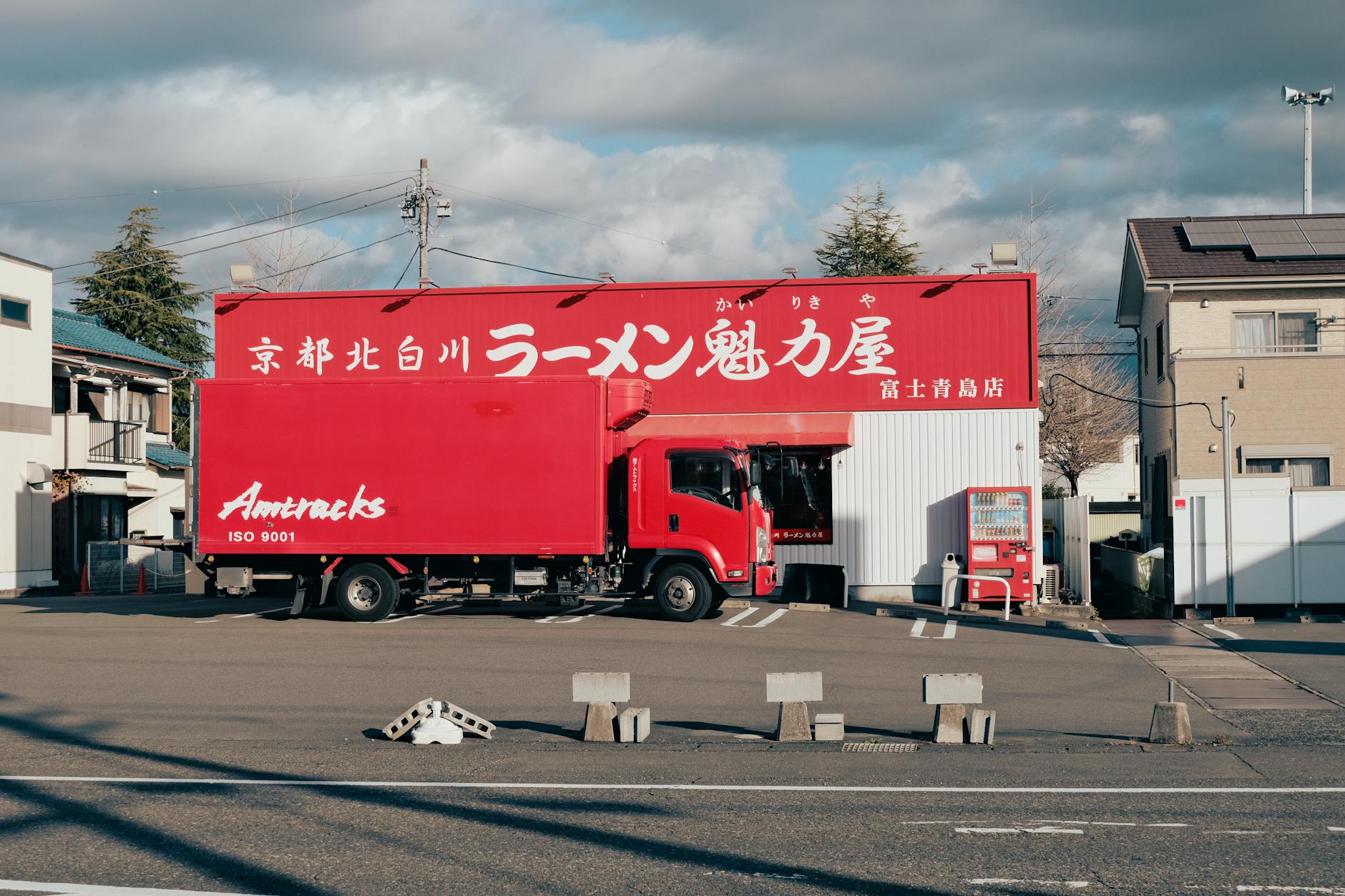How to Enhance E-commerce Efficiency in Australia with Tech Innovations

Streamlining Operations with AI
With e-commerce evolving rapidly, integrating Artificial Intelligence (AI) into logistics has become a significant focus for companies, especially in tech-forward places like Melbourne’s Docklands. The AI-driven shift is transforming processes such as pick packing, optimizing them for increased speed and accuracy. By incorporating AI, e-commerce businesses can achieve a level of efficiency that manual processes simply can't match.
The power of AI extends to predictive analytics, which anticipates customer demand and aligns supply chain operations proactively. This means warehouses and distribution centres can maintain optimal inventory levels by analyzing purchasing trends and behavior. Automating these decisions reduces excess stock and minimizes the chances of running out of in-demand products, directly impacting profitability.
Then there's the role AI plays in automating order fulfillment. By deploying advanced algorithms, systems can seamlessly coordinate picking, packing, and shipping of orders. For example, smart conveyor belts and robotic assistants can streamline the pathway from order receipt to delivery, transforming traditional methods. The efficiency gained not only reduces the burden on human resources but also ensures that customer expectations for quick deliveries are met.
Such advancements are complemented by using third-party logistics technology, or 3pl logistics, which integrates seamlessly with AI systems to further enhance operational capabilities. Whether through real-time order tracking or automated task allocations, businesses streamline their service remarkably with 3pl partnerships. These enhancements promote a robust, tech-savvy operational environment reflective of innovation labs at the University of Melbourne, setting a standard for efficiency in the industry.
Leveraging Blockchain for Security
Securing Transactions
In the dynamic environment of e-commerce, safeguarding transactions is crucial. Blockchain technology offers a secure framework for financial dealings by encrypting each transaction on a decentralized ledger. This method not only prevents data tampering but also ensures the integrity of every transaction processed. For a developer like myself, already knee-deep in e-commerce software development from the innovation labs of the University of Melbourne, integrating blockchain into existing systems provides an added layer of trust. This technology serves as a powerful ally in fortifying transactional security in the competitive arena of ecommerce logistics.
Enhancing Supply Chain Transparency
Blockchain's transparency is transformative, particularly in warehousing sydney and the broader supply chain. Each node in the supply chain can validate and update records, visible to all stakeholders without compromising data security. This transparency is invaluable when dealing with intricate logistics processes. Real-world coding examples demonstrate how smart contracts can ensure compliance and automate payments, reducing manual intervention and eliminating discrepancies. In fact, this level of transparency is what differentiates innovative e-commerce platforms from traditional ones, paving the way for more streamlined logistics solutions.
Building Trust with Customers
Integrating blockchain isn’t just about enhancing security; it’s also about building unwavering trust with customers. In my experience, when clients understand that their data is protected by such a robust technology, it fosters confidence in the platform. It’s akin to what we strive for in the tech-savvy circles of Melbourne’s Docklands—delivering solutions that are both cutting-edge and reliable. By using blockchain, e-commerce platforms can assure users of transactional security and privacy, ultimately empowering them with peace of mind.
Integrating IoT in Logistics
Real-Time Tracking Capabilities
Leveraging IoT for real-time tracking is a game-changer for e-commerce logistics. Visualise having absolute oversight of your supply chain similar to how advanced sensors at the tech hub in Melbourne’s Docklands enable seamless data flow. IoT devices can provide real-time data that allow businesses to track their shipments more accurately, ensuring timely deliveries and improved customer satisfaction.
Optimizing Inventory Management
Incorporating IoT in inventory management can enhance precision and efficiency. By using sensors to monitor stock levels, businesses can automate pick and pack processes. This approach reduces manual errors and streamlines operations, akin to the cutting-edge methodologies you might find at innovation labs in the University of Melbourne. As a result, organizations can respond quickly to fluctuations in demand, ensuring the right products are always available on digital shelves.
Reducing Operational Downtime
IoT solutions contribute significantly to cutting operational downtime by enabling predictive maintenance. Picture smart warehousing akin to co-working spaces in South Melbourne, where connectivity and efficiency are paramount. Sensors can anticipate equipment failures before they occur, thus allowing proactive measures to be put in place. This predictive ability extends beyond the confines of the facility, partnering seamlessly with third party logistics providers to maintain supply chain continuity.
Integrating IoT in logistics marks a significant advancement in how e-commerce platforms operate, bringing a high-tech edge to traditional processes.
Enhancing User Experience with AR
Virtual Try-Ons for Products
Augmented Reality (AR) is revolutionizing e-commerce, especially in the realm of virtual try-ons. Imagine an app that allows users to see how a pair of glasses or a piece of furniture fits into their world. This technology leverages sophisticated algorithms and camera integration to project 3D models onto real-world environments. A prime example, reminiscent of the cutting-edge work done in the innovation labs of the University of Melbourne, involves developers experimenting with AR frameworks to enhance the user experience. By offering virtual try-ons, retailers can reduce return rates and increase customer satisfaction—an indispensable feature in today's competitive e-commerce arena.
Interactive Mobile Applications
Developing interactive mobile applications is crucial for tech-savvy consumers. These apps harness AR to provide users with immersive experiences, such as virtual store tours or interactive product showcases. For developers like me, it's a thrilling challenge to integrate live interactions that feel seamless. This involves optimizing ARKit or ARCore implementations to ensure smooth performance across various devices. Drawing inspiration from the bustling activity at co-working spaces in South Melbourne, teams are constantly coding and debugging to refine user interfaces that captivate and engage.
Engaging 3D Product Visualizations
3D product visualizations offer an intricate level of detail that static images simply can't match. By implementing AR solutions, e-commerce platforms can provide users with a tactile sense of products through realistic renderings. Whether it's textiles or tech gadgets, 3D visualizations enable customers to inspect items from every angle, offering them an experience akin to visiting a 3pl warehouse sydney. Direct integration of these features into order fulfilment systems ensures that users not only view but interact prior to purchase, crafting a holistic and satisfying shopping journey.
Addressing Integration Challenges
Simplifying Complex Integrations
Navigating through the intricate web of technological integrations in e-commerce is no small feat. Think about the bustling hubs in Melbourne’s Docklands or the innovation labs at the University of Melbourne. They’re always abuzz with activity because, as any tech enthusiast from a co-working space in South Melbourne would agree, simplifying complex integrations is foundational. A straightforward example: when merging two different platforms, like a customer management system with an inventory tracker, using APIs is critical. It’s the magic key that can unlock smoother data flow and ensure systems talk to each other without a slip-up.
Bridging the Technical Skills Gap
Let's be real, the tech industry in Melbourne, or anywhere for that matter, often encounters a technical skills gap. But worry not! This shouldn't be a deterrent. In our dynamic tech ecosystem, for instance at South Melbourne co-working spaces, there's an emphasis on continuous upskilling through workshops and courses. Art of Python programming paired with real-world coding examples is often highlighted. Not only does this boost overall productivity, but it also adds an enriching layer of knowledge-sharing amongst peers.
Strengthening Security Measures
Security vulnerabilities, when overlooked, can unthrone even the strongest e-commerce empires. Think of it this way: implementing solutions like blockchain for end-to-end encryption becomes imperative. It's akin to fortifying your digital presence with an impenetrable shield, thus assuring customers their data is safe. Regular security audits and penetration tests in tech hubs, much like those conducted in the innovation labs of the University of Melbourne, are essential practices. This empowered approach ensures we’re ever-ready to tackle even the stealthiest of cyber threats.


